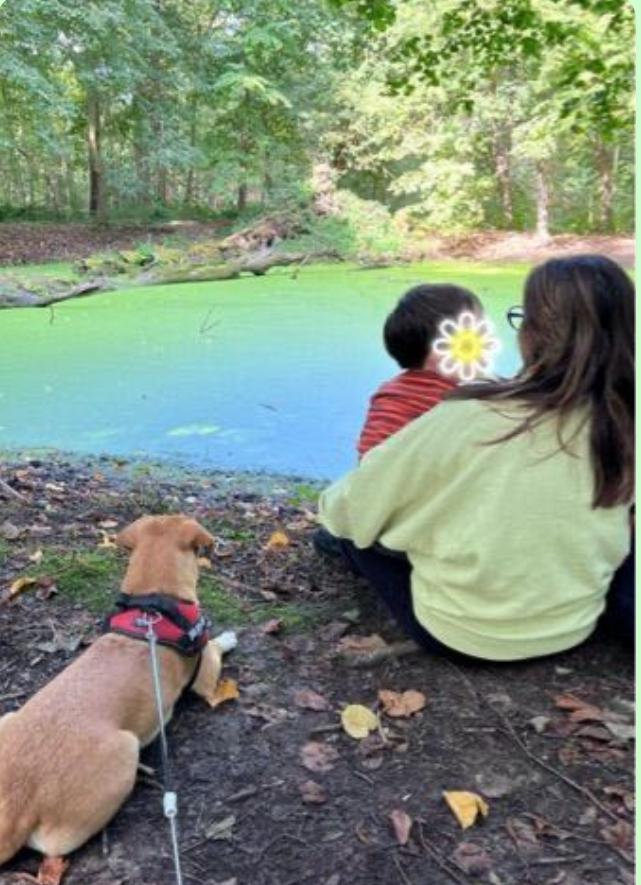Mothering Again: From Instinct, Profession, and Love

Over six years ago, my husband's sister decided to become a single mother. I knew what that choice meant. I had already been a mother myself, and as a psychologist, I understood well the implications of taking on that role-its joys and its burdens. I also knew that for a child to grow up in an emotionally balanced environment, more than one caregiver is often needed. But who was I to question such a genuine desire to become a mother?
What I never imagined was that, with the arrival of that beautiful baby, I would find myself mothering again. From the day of his birth-which I spent at the hospital-through the following years (yes, years), I gradually became more involved: in times of exhaustion, illness, crisis, and in the day-to-day rhythm of raising a child.
As many know, in this country babies typically start daycare at three months old, or six months if they're lucky, so their parents can return to work. Whether fortunate or not, given my background and professional experience, I was fully aware of the impact that early separation from a caregiver can have on an infant. Knowing this hurt. It stirred something deep within me. I felt I couldn't just stand by.
My maternal instinct, paired with my professional insight, stepped forward: "I'll take care of him," I thought, "until he is independent enough to begin school." And that's exactly what I did.
What did that mean? I had to adjust my schedule, reduce my clinical practice, and rearrange my life as a therapist and a mother. But thanks to the support of my husband and daughter-who understood the importance of this time-I was able to offer that baby a nurturing, respectful, loving space. I didn't do it for gratitude, nor for the adults. I did it for him.
Because I know that childhood wounds are more bearable when there is at least one warm, stable, and safe space. In therapy, when I meet adults shattered by early life experiences, I've seen how healing begins when they recall someone who was there for them-a caring aunt, a grandparent, a neighbor... These figures save lives.
And even more so when the child is being raised by a single mother, carrying the emotional, economic, and caregiving responsibilities alone.
So yes, I committed to raising him, following Montessori principles and with the intention that he would learn my language-Spanish-so that we could communicate deeply. Many told me I was crazy, that it was too much, that it wasn't my responsibility. And I won't lie: I had moments of doubt, sadness, even frustration. I felt I was mothering again, unexpectedly, while putting an important part of my career on hold.
But my family always supported me with words of encouragement. They reminded me that this effort would eventually show results. My mother especially-who had done something similar for some of my cousins-spoke honestly about how hard it was, but also how incredibly rewarding it could be to watch a child grow in love.
A veces, lo confieso, me invade una nostalgia: la de haber deseado tener yo también una tía cerca cuando cuidaba sola a mi hija. En aquel entonces, mis hermanas estaban en otros países. A su manera me apoyaron, sí, pero esa red cercana, tangible, me faltó… Tal vez por eso, sin darme cuenta, me convertíahora yo en esa figura que alguna vez necesité.
At times, I admit, I've felt a pang of envy-I wish I had had an aunt by my side when I was raising my own daughter alone. My sisters were living in other countries, and while they helped in their own ways, I missed that nearby support. Perhaps, without realizing it, I became the figure I once needed.
And yes-I saw him take his first steps, speak his first words, live his first school days, and laugh his first big laughs. Today, at six years old, when he needs support, he knows he can find it here at home. I see him growing up strong, confident, bilingual, resilient, with a thoughtful gaze and deep reflections in Spanish.
And yes, it's been exhausting. And sometimes the heart breaks, knowing you can't rescue everything-because no, you can't always do it all. But I hold on to the deep satisfaction of having planted that seed. That bond, that presence, that early love-I know it will make a difference when he needs it most.
And so I understand: it was worth it, and it still is, every single minute I gave him.
Thank you to all the women who mother with love the children who are not biologically theirs, but who care for them wholeheartedly. Women who do so quietly, from the shadows, but with hearts full of purpose-to help raise future generations with more respect, more grounding, and more security.


